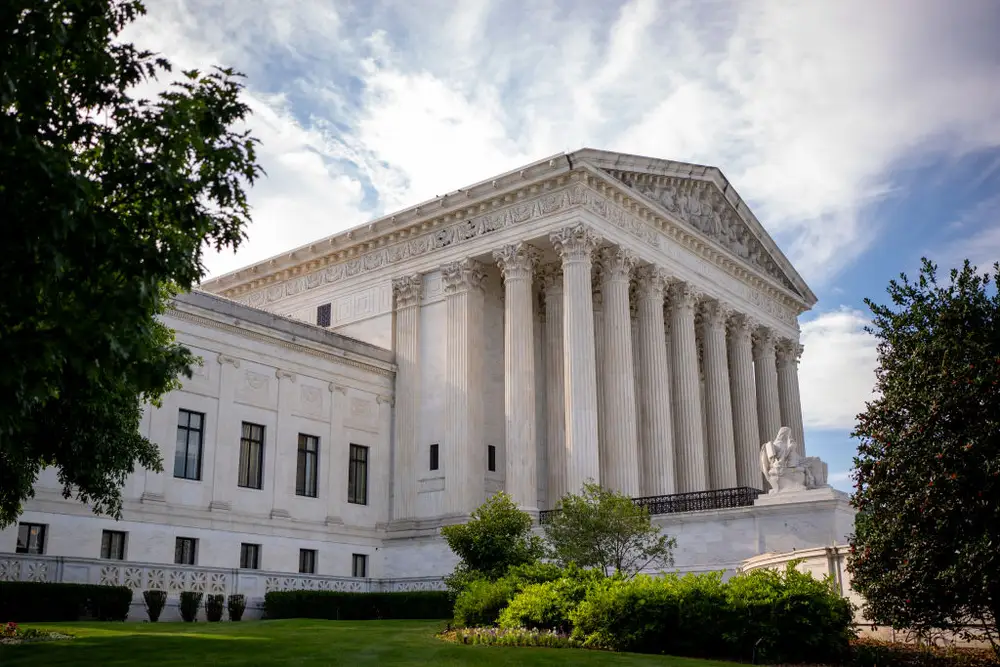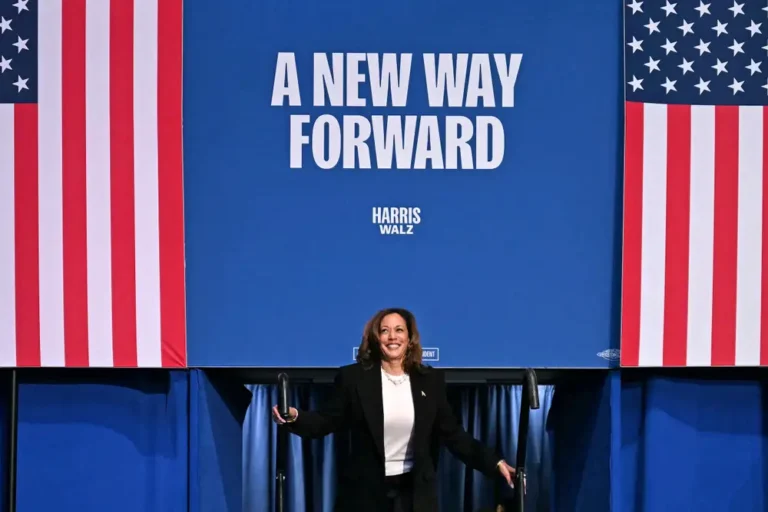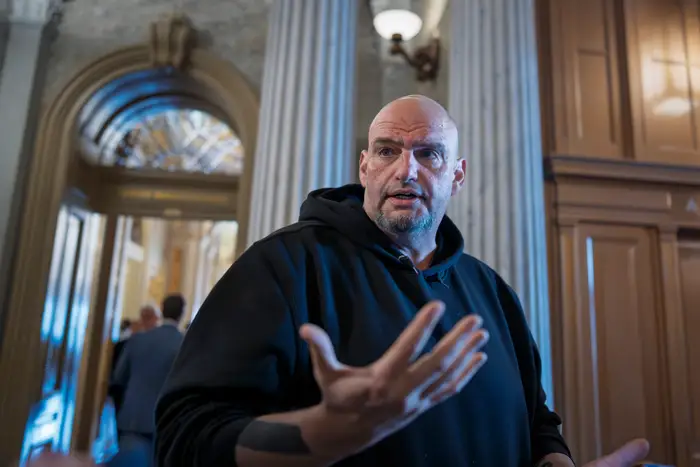Big Tech gets a big win from the Supreme Court

The US Supreme Court is issuing its most highly anticipated decisions before the term ends in July
The Supreme Court isn’t willing to blow up the internet just yet.
In a decision released Monday on a pair of cases concerning whether or not social media companies can moderate content on their platforms, the Supreme Court kicked the cases back down to the lower courts in Texas and Florida.
But, in outlining why the lower courts need to reconsider the cases, the high court essentially granted a victory to social media giants, a legal expert told us.
The Supreme Court had been weighing two cases — Texas’s NetChoice v. Paxton and Florida’s Moody v. NetChoice — both of which concerned laws in each state that limited social media companies’ ability to censor posts based on users’ viewpoints.
The laws were introduced after Donald Trump was booted off of Facebook and (then-called) Twitter in 2021 following the January 6 attack on the Capitol.
Republicans in both states had argued that, in moderating the kinds of content that appear on their platforms, social media companies were discriminating against right-wing viewpoints and violating users’ constitutional right to free speech.
There are a few key differences in the scope of both laws.
The Texas law applied to social media companies with at least 50 million users, while Florida included companies with over 100 million users.
Also, the Florida law specifically prohibited the companies from removing political candidates for office from the platforms, while the Texas law more generally prohibited the companies from removing any users’ content based on their viewpoints.
As Judge Andrew Oldham wrote in his appeals court decision upholding the Texas law, the Florida law “prohibits all censorship of some speakers,” while the Texas law “prohibits some censorship of all speakers.”
NetChoice, a trade group representing companies including Meta, Google, Snap, and TikTok, sued over the laws, arguing that as private entities the companies have a right to make editorial decisions about what kinds of content they allow. While supporters of the state laws had argued that users have a constitutional right to free expression on the platforms, NetChoice, ironically, argued that the companies have a constitutional right to free speech in deciding how to run their platforms.
“Texas is trying to flip the script and saying that somehow the First Amendment protects Texas citizens from the actions of private entities,” Clay Calvert, a media law and First Amendment law expert, told us.
The thing about the First Amendment though is that it protects from government censorship of free speech, not from private entities.
“So both sides are claiming somehow that the other is trying to harm free speech interests,” Calvert said. “But the fundamental principle is the First Amendment only protects us from government censorship.”
And that’s partly what the Supreme Court took issue with in its decision, with Justice Elena Kagan writing that the lower appeals courts in both states had not adequately analyzed NetChoice’s First Amendment challenges to the laws or the scope of what platforms the laws apply to.
“Today’s decision is a victory for NetChoice, because the court articulates very important principles that will come into play on remand ultimately in these cases,” Calvert said.
The first of those principles that Kagan outlines is that social media companies are protected by the First Amendment when they curate content, Calvert said.
“Another big principle is that the government, whether it’s Texas or Florida, cannot justify curtailing that editorial control and discretion and freedom under the interest of ‘We need to rebalance and level the playing field to make it more even for conservative and liberal viewpoints,'” Calvert added. “That doesn’t fly.”
Before the cases made their way to the Supreme Court, they were battled out in the lower courts, and neither law went into effect under state attorneys general Ken Paxton and Ashley Moody.
Part of the reason the Supreme Court might have agreed to hear the cases to begin with is because there was a circuit split between the states. Texas’s Fifth Circuit Court of Appeals had ruled that the law was constitutional, while Florida’s Eleventh Circuit Court of Appeals ruled that the law was unconstitutional.
Now, those lower courts will have to reconsider the cases. The implications of their decisions could be huge.
Calvert told uz before SCOTUS’s Monday decision that if the laws are allowed to go into effect, “The implications would be disastrous for social media platforms as we know them today.”
“They would have to host all viewpoints on any topic and could not establish for themselves the types of communities, the speech-based communities that they want to host. So it would change things radically,” Calvert added.
But Calvert said on Monday that because the high court’s decision is so favorable to the social media companies, that’s not likely to happen.






